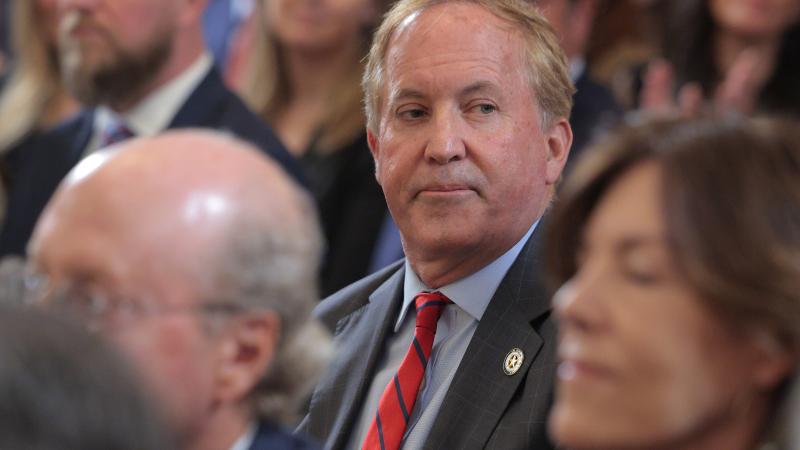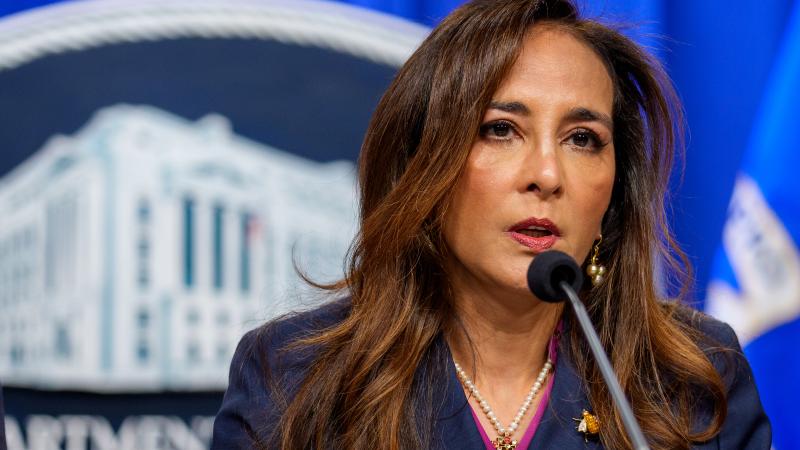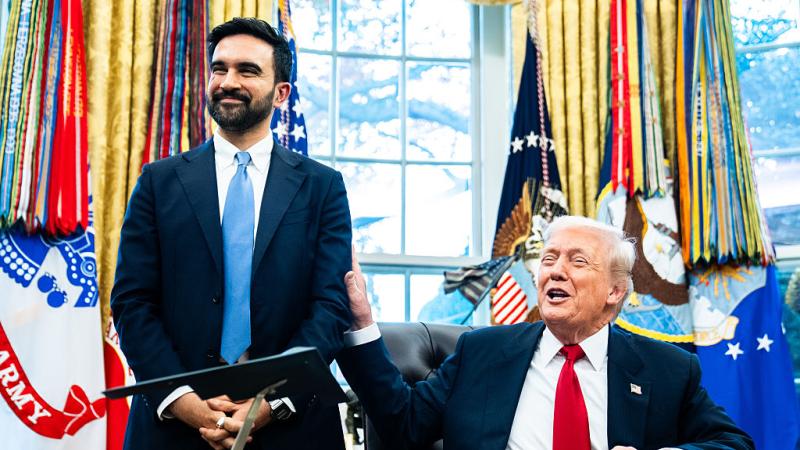House Oversight subcommittee grills DOE official on who or what influenced Biden’s LNG export ‘ban’
“It appears possible that when the information the department had did not fit the narrative pushed by the White House, that information was buried in an attempt to clear the way for a more politically favorable analysis,” Rep. Pat Fallon, R-Texas, said.
Ever since President Joe Biden announced in January that the Department of Energy was stopping the approval of liquified natural gas permits, questions swirled around why the decision was made. A House Oversight subcommittee hearing Wednesday sought to find some questions as to who influenced the decision and why it was made.
While Biden had claimed the pause was necessary to update the Department of Energy’s research on whether or not LNG exports are in the public interest, Rep. Pat Fallon, R-Texas, chair of the Economic Growth, Energy Policy and Regulatory Affairs subcommittee said at the hearing that the decision was “entirely political.” Despite supporters calling it a “pause,” Fallon said it is “an effective ban,” which has put investments and jobs in jeopardy.
Under wraps
John Podesta, who serves as a senior advisor to the White House on climate, was invited to testify at the hearing, but he declined to appear. Fallon said Podesta’s choice was unfortunate as there are many questions the committee believes he could answer.
“Reports indicate that before the ban, the White House met with activists and TikTok influencers — not making that up — who are adamant that the administration take radical steps to address climate change and eliminate fossil fuels,” Fallon said, and that Podesta engaged in these meetings.
Fallon said that the Energy Department may have had a study in 2023, which it “kept under wraps and is still fighting to withhold.”
“It appears possible that when the information the department had did not fit the narrative pushed by the White House, that information was buried in an attempt to clear the way for a more politically favorable analysis,” Fallon said.
Brad Crabtree, DOE assistant secretary for fossil energy and carbon management, told the committee that he wasn’t aware of any completed study in 2023. He said that DOE staff discussions of potentially updating the 2018 study on the economic impacts of LNG exports were happening at the time he joined the administration in May 2022.
“There are many facets to this analysis. Each of them involves modeling. Each of them has a qualitative and quantitative analytical component. And so I imagine what you're referring to is early documentation of that sort. But a complete study did not exist in 2023,” Crabtree said.
He said the updated analysis will be released by mid-December, and a 60-day comment period will follow.
Howarth’s role?
Rep. Russell Fry, R-S.C., asked Crabtree about how much the Department of Energy has relied on the research of Cornell Professor Robert Howarth in doing the forthcoming analysis. Howarth’s controversial research, which found that exported LNG produces more greenhouse gas emissions than coal, was cited by activists and Democrats calling for a ban on LNG exports. An analysis by the Breakthrough Institute found Howarth’s research to be riddled with errors, though Howarth disputes the accuracy of the analysis.
Crabtree said Howarth played no role in the decision to update the analysis, and neither he nor anyone on his team has ever interacted with Howarth. Crabtree said that his department has a lab performing a lifecycle analysis, and its methodology is entirely different from that of Howarth’s.
Howarth’s study was funded by the Park Foundation, which funds anti-fossil fuel activism, and Howarth is an advocate for eliminating the use of natural gas. He sits on the board of directors of the anti-fossil fuel nonprofit Food and Water Watch, all of which has raised questions about whether Howarth keeps his activism separate from his research.
In an interview with Just the News in August, Howarth defended the quality of his research, saying his decades-long prestigious record demonstrates that. He also argued that the risk of climate change is well supported by science and justifies actions to eliminate fossil fuels. “So critics are simply playing games with you when they say I am an advocate first and research scientist second. My record clearly proves this wrong,” Howarth said.
Crisis of continuity
Crabtree also argued that the moratorium on LNG export permits has had no impact on LNG export volumes.
“The program I lead has authorized over 48 billion cubic feet and exports to non FTA [Free Trade Agreement] countries, four times our actual current LNG export levels and nearly 45% of our current domestic natural gas production. By any measure, our export posture is strong and will grow dramatically during the remainder of this decade, regardless of future export approvals,” Crabtree said.
The moratorium on LNG export permits only impacts those countries without a free trade agreement with the United States, which Fallon said was about 175 countries out of 195. Rep. Clay Higgins, R-La., said that Biden’s moratorium on LNG export permits created a “crisis of continuity” impacting “massive projects that require international investment.”
Rep. Scott Perry, R-Pa., asked Crabtree about 97 documents that the public interest nonprofit Government Accountability and Oversight requested through the Freedom of Information Act. Crabtree said that documents are handled by another department in the DOE, and he couldn’t speak to the status of that request.
"Politically manufactured"
Rep. Melanie Stansbury, D-N.M., ranking member of the subcommittee, said that the topic of the hearing was a “politically manufactured non-issue.” She criticized the characterization of the moratorium as a ban on LNG exports. The pause, she said, was a means to assess the economic impacts of expanding LNG export capacity, especially in light of foreign wars, as well as the impacts on “climate change and social justice.”
“I think any good business would want a good, sound economic analysis,” Stansbury said. She also claimed that the hearing was being orchestrated by the natural gas industry.
“It's clearly in the service of creating a congressional record so that when the Trump administration comes in, there's some legal and possibly congressional teeth to whatever fight these private companies are hoping to take on,” Stansbury said. Stansbury also mocked questions about whether the DOE had an existing study that didn’t line up with the narrative the Biden-Harris administration wanted.
“Folks are talking like, oh, they found a dusty piece of paper somewhere in a filing cabinet that they had already written and filed away. This is a multi-million dollar modeling exercise to understand global export markets for gas products that the industry would like the U.S. government to permit and subsidize. And we're trying to figure out if it is in the public interest to allow this giant bonanza without any guardrails around it,” Stansbury said.
In his closing remarks, Fallon disputed Stansbury’s accusations that industry asked for the hearing. “I can unequivocally say that there was zero discussion with anyone in the industry. This was something that we decided to do,” Fallon said.
The Texas representative also called Crabtree’s assertion that the year-long pause on export permits had no impacts to be “inane.”
“I think on November 5, the American people made it very clear that they were tired of an administration playing politics with their future. Enough is enough,” Fallon said.















